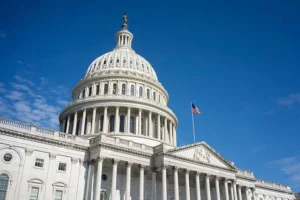A deepening Alaska budget standoff emerged after the governor’s office restricted agency staff from entering the state Capitol without explicit permission. The policy left Senate Finance Committee members waiting without a representative from the Office of Management and Budget at their critical pre-vote meeting.
Legislators had planned to debate a last-minute amendment to the state’s multibillion-dollar operating budget before the scheduled Senate vote. The new restriction arrived via a memo circulated Monday by Jordan Shilling, the governor’s boards and commissions director.
The memo barred commissioners, deputies, directors, and liaisons from entering the building without prior approval for the next three weeks. Lawmakers, already frustrated with declining communication, saw the directive as an unexpected escalation.
Senator Bill Wielechowski, an Anchorage Democrat, said he had never witnessed a department decline to cooperate on primary legislation. As a key example, he highlighted Senate Bill 113, a tax bill projected to raise $65 million annually.
Wielechowski said the Department of Revenue initially inspired the bill and had since stopped answering inquiries or providing feedback. Representative Andy Josephson, co-chair of the House of Finance Committee, expressed disappointment that the executive branch limited staff access.
He emphasized that legislators depend on agency experts to guide complex financial decisions during budget negotiations. Josephson questioned whether the memo signaled disapproval of the legislature’s broader actions.
Governor’s spokesman Jeff Turner defended the directive as consistent with past practices, stating prior administrations had restricted Capitol visits in the final session days. Turner added that agency staff would continue to testify and provide information when necessary.
However, a former administration official said requiring written approval rather than informal caution marked a shift. Senate President Gary Steven, who has served 25 years in the legislature, raised concerns about future collaborations.
Stevens asked whether agency staff would remain accessible online or in person, or if communication might stop altogether. The budget standoff left legislators uncertain about receiving vital executive branch input as the session’s closing deadline approached.











